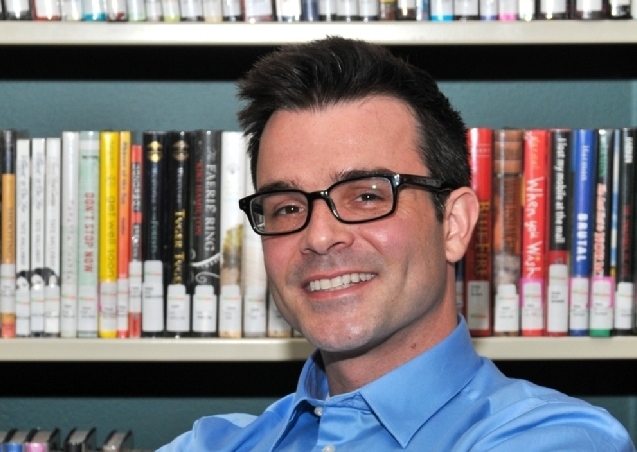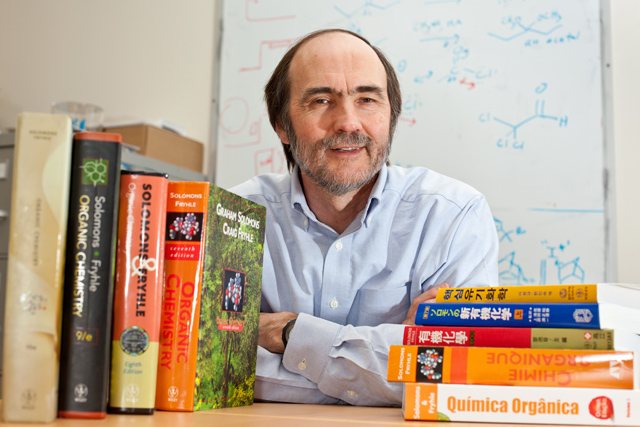Page 183 • (3,648 results in 0.04 seconds)
-

learning, serving and sharingThe third reading in the program is a piece by Brazilian writer Paulo Coelho that reads: “but love is much like a dam: if you allow a tiny crack to form through which only a trickle of water can pass, that trickle will quickly bring down the whole structure, and soon no one will be able to control the force of the current. For when those walls come down, the love takes over, and it no longer matters what is possible or impossible;” How is this piece perhaps applicable to
-

was. We discovered the ‘lost tomb’ with a broom in about the first 30 minutes of our expedition.” The rediscovery of Tomb 60 proved to be one of the most important archaeological finds in recent memory, as one of the tomb’s mummies is believed to be Egypt’s female pharaoh, Hatshepsut. Given its special place in the history of archaeology, Ryan believes that excavating in the Valley of the Kings is a very special honor. “We are learning a lot from looking at these undecorated tombs and we were
-

recalls the difficulty he had learning to read as a child due to his experience with dyslexia. Because of the setback, he knew that he was going to have to find another way to learn than traditional book reading. Bannon found he was able to learn best when he had hands-on experience, something that later influenced his interest in libraries and their use of technology. Now the newly appointed CEO of the Chicago Public Library System, Bannon has definitely found his passion. He replaced the longtime
-

awesome outlet because I have not had that at home,” Beiermann said. Beiermann insisted young people have nothing to fear when engaging in politics. He said they can promote the most change by confidently participating. The key to confidence, Beiermann said, is education. “When I started, I didn’t know anything. But I went there, I showed up, and I said, ‘I want to learn,’” he said. “Even if you know nothing about politics…show up. Half the battle is showing up, the other half is learning.” Read
-
Hour Reunions: These will all take place from 9 a.m. to 10:15 a.m. and are free. The following classes and affinities will gather individually for coffee and reminiscing: 1947 – 1949, 1958 and Pear Bowl Alumni in the Morken Center for Learning & Technology 1963, 1968, 1973, 1983, 1988, 1993 and African American Alumni in the University Center. Homecoming Celebration Brunch: This will take place from 10:30 a.m. to noon at Olson Auditorium. The cost is $20. All alumni and friends are invited to this
-
, the Nativity House, Tacoma Community Center and the Tacoma Rescue Mission. The students came to make a difference, but the impact of the experience ended up changing how they see the world. “For me it was about learning how exactly we can be helpful to other people,” McCracken said. “Being present is the most important thing we can do.” “It opened my eyes to how community and how relationships are truly valuable,” said Nicole Gallego ’11, sociology major from Federal Way, Wash. “The experience
-

really engage with the professors and the people that you are with.” Dean is hoping to start an indigenous peoples club at PLU and is looking forward to a potential indigenous studies minor. “Being Native American is a big part of my life,” Dean said. “I might not look it to other people, but I feel it in here.”Learn moreIf you are interested in learning more about the Red Feather Scholarship, contact Director of Military Outreach Michael Farnum at farnumms@plu.edu. Read Previous Pacific Lutheran
-
challenge I would not give up,” Marzano said. “This is what I love to do and this is what I’m here at school to study doing. I try to view them as kind of in the same boat. I’m here learning what I’m doing at 7 p.m. that night. The only thing that is a bummer is the commute. That’s the only downside. Everything else, all the time I put in rehearsing, is just the name of the game. I learn no matter what I’m doing.” Marzano, who has performed at the Vashon Opera, Lakewood Playhouse and at PLU, has already
-

May 11, 2012 For more than a decade, Professor Craig Fryhle, chair of PLU’s Chemistry Department, has coauthored an organic chemistry textbook that has become standard, celebrated and familiar fare for sophomore students studying organic chemistry in many universities. Fryhle is just finishing up the 11th edition of the book with his coauthor, T.W. Graham Solomons. (Photo by John Froschauer) For organic chemistry students, Prof. Craig Fryhle’s name pops up almost every time they open a book. By
-
some ways it’s a very primal fascination or instinct.” As Ryan regularly points out to his students, the world didn’t start on the day they were born. The study of the past is an important step in understanding how human beings got here and where civilization may be headed. “Egyptians had a lot to contribute to that,” he said. “It’s a very fertile ground for learning a tremendous amount about the human past. Even before they were building pyramids, there’s this whole process where people went from
Do you have any feedback for us? If so, feel free to use our Feedback Form.


